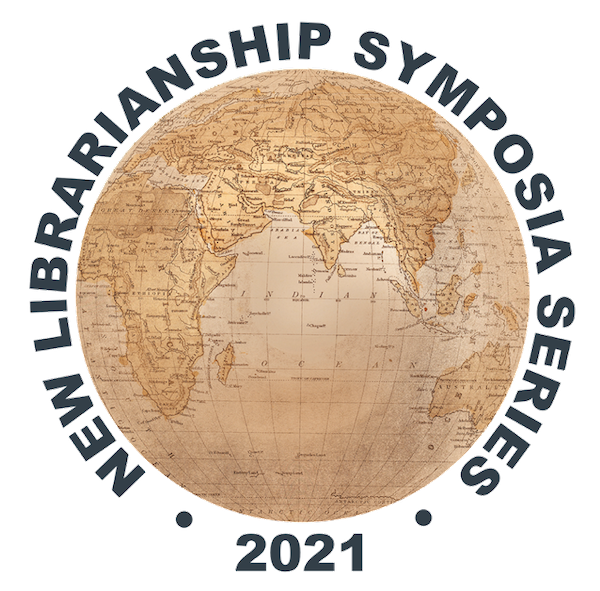The Librarians role in the Society 5.0
Submission Type
Paper Abstract Submission
Symposium Selection
Post-neutrality librarianship
Keywords
Society 5.0; libraries of the future; new librarians; the future of information services; contemporary needs of library users
Abstract
Society 5.0 is a human-centred society that balances economic progress with solving social problems through a system that effectively integrates cyberspace and physical space (Fukuyama, 2018). This cyber-physical integration, already referred to long before the Society 5.0 concept (Gibson et al., 1992), contributes to an interconnected and intelligent society that uses technology to fulfil its purpose (Aldabbas et al., 2020) of meeting the diverse needs of individuals by providing essential goods and services in a time and volume (Olariu, 2020). In other words, society 5.0's goals are to make society more economically prosperous while improving the community's quality of life (FISIP, 2020).
Libraries, in turn, are social institutions with a long history in the community and, over time, have acted as information and knowledge centres capable of illuminating civilisation. On the other hand, through the interconnectedness of society, it appears that the Society 5.0 era has the power to change the community's mindset about libraries. Therefore, in addition to being information centres, libraries must become community sites for dialogue, collaboration, and cooperation to improve people's well-being (Frederick, 2016). In society 5.0, libraries must understand the needs of users and how users can easily access the information they need in a relevant and immediate way. It must also provide equitable access to each user. The role of libraries and their existence can be a solution for the massive development of information by implementing a service principle without any differentiation in obtaining information so that all users have equal access (FISIP, 2020).
In this work, we intend to explore the perceptions of librarians of the role of libraries in Society 5.0. The research objectives are: to systematise the existing knowledge about the relationship between libraries and Society 5.0; to identify the information services that libraries should provide (characteristics and outputs) and the technologies associated with these services; and to identify the key characteristics, including the knowledge and skills of librarians for Society 5.0 and of the libraries users.
To accomplish these objectives, we will undertake a systematic literature review complemented with a set of interviews with librarians. The systematic literature review will help identify related works exploring the relationship between Society 5.0 and libraries. In the interviews, we will present a questionnaire with questions about the role of libraries and librarians in Society 5.0, the profile and needs of librarians and libraries users, and the technologies needed to implement information services.
Upon reaching the proposed objectives, this research will contribute with a map of the current state of investigations into the relationship between libraries and Society 5.0. In this map, it will be possible to identify the characteristics of the potential information services that libraries should provide and the associated technologies. In addition, it will be possible to identify the knowledge and skills of Society 5.0 librarians as well as library users.
The Librarians role in the Society 5.0
Society 5.0 is a human-centred society that balances economic progress with solving social problems through a system that effectively integrates cyberspace and physical space (Fukuyama, 2018). This cyber-physical integration, already referred to long before the Society 5.0 concept (Gibson et al., 1992), contributes to an interconnected and intelligent society that uses technology to fulfil its purpose (Aldabbas et al., 2020) of meeting the diverse needs of individuals by providing essential goods and services in a time and volume (Olariu, 2020). In other words, society 5.0's goals are to make society more economically prosperous while improving the community's quality of life (FISIP, 2020).
Libraries, in turn, are social institutions with a long history in the community and, over time, have acted as information and knowledge centres capable of illuminating civilisation. On the other hand, through the interconnectedness of society, it appears that the Society 5.0 era has the power to change the community's mindset about libraries. Therefore, in addition to being information centres, libraries must become community sites for dialogue, collaboration, and cooperation to improve people's well-being (Frederick, 2016). In society 5.0, libraries must understand the needs of users and how users can easily access the information they need in a relevant and immediate way. It must also provide equitable access to each user. The role of libraries and their existence can be a solution for the massive development of information by implementing a service principle without any differentiation in obtaining information so that all users have equal access (FISIP, 2020).
In this work, we intend to explore the perceptions of librarians of the role of libraries in Society 5.0. The research objectives are: to systematise the existing knowledge about the relationship between libraries and Society 5.0; to identify the information services that libraries should provide (characteristics and outputs) and the technologies associated with these services; and to identify the key characteristics, including the knowledge and skills of librarians for Society 5.0 and of the libraries users.
To accomplish these objectives, we will undertake a systematic literature review complemented with a set of interviews with librarians. The systematic literature review will help identify related works exploring the relationship between Society 5.0 and libraries. In the interviews, we will present a questionnaire with questions about the role of libraries and librarians in Society 5.0, the profile and needs of librarians and libraries users, and the technologies needed to implement information services.
Upon reaching the proposed objectives, this research will contribute with a map of the current state of investigations into the relationship between libraries and Society 5.0. In this map, it will be possible to identify the characteristics of the potential information services that libraries should provide and the associated technologies. In addition, it will be possible to identify the knowledge and skills of Society 5.0 librarians as well as library users.


